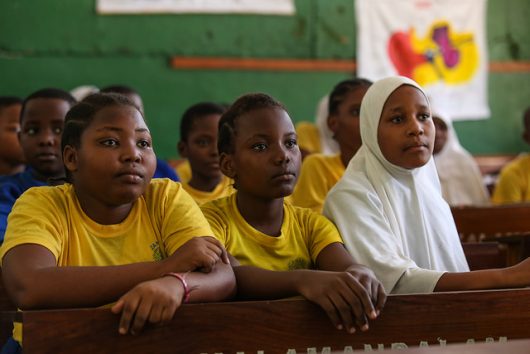3 Violations of Human Rights in Tanzania
 On June 22, 2017, Tanzanian President John Magufuli stated that pregnant adolescent girls will not be allowed to return to school because their pregnancies encourage other girls to have sex. This statement represents one of the several ways young women and other vulnerable Tanzanian populations are set up to fail, trapped in an endless cycle of poverty. There are numerous violations of human rights in Tanzania. This article will discuss three.
On June 22, 2017, Tanzanian President John Magufuli stated that pregnant adolescent girls will not be allowed to return to school because their pregnancies encourage other girls to have sex. This statement represents one of the several ways young women and other vulnerable Tanzanian populations are set up to fail, trapped in an endless cycle of poverty. There are numerous violations of human rights in Tanzania. This article will discuss three.
To understand the extensive violation of human rights in Tanzania, one must first understand what the Universal Declaration of Human Rights says. This document was created on December 10, 1948 by the United Nations General Assembly because of the events of World War II. The document lists thirty articles or rights that belong to all people. The three articles of the document that are regularly transgressed in Tanzania are:
- Article 3: Everyone has the right to life, liberty and security of person.
- Article 5: No one shall be subjected to torture or to cruel, inhuman or degrading treatment or punishment.
- Article 26: Everyone has the right to education. Education shall be free, at least in the elementary and fundamental stages. Elementary education shall be compulsory. Technical and professional education shall be made generally available and higher education shall be equally accessible to all on the basis of merit.
Mistreatment of Young Women
Tanzanian women lack the human rights guaranteed to all in articles 3 and 26: the rights to livelihood, freedom, safety and an education. In their 2016 report, “I Had a Dream to Finish School,” the Human Rights Watch reported that girls in Tanzania are sexually harassed by teachers, bus drivers and adults. The leaders in their lives who are supposed to guarantee their safety instead request sex in exchange for gifts, rides or money. Schools in the country do not report sexual abuse cases to police. In addition, there is no system for reporting these infractions confidentially. The result? Less than one-third of girls entering lower-secondary schools graduate.
In addition to being sexually harassed, girls also are forced to take pregnancy tests at school. If a girl is pregnant, the school then expels her. Tanzanian schools expel around 8,000 pregnant girls each year. This policy reinforces President Magufuli’s June comments and is intended to discourage an upsurge in teen pregnancies. In reality, the policy violates the human rights of these young women. It also targets the victims rather than the offenders.
Barring Education through Testing
Tanzanian school children lack the human rights guaranteed in articles 5 and 26: the rights to not be exposed to cruel punishments and to seek an education. According to the Human Rights Watch, the Tanzania government controls the number of students who can seek a secondary education by making it mandatory for all students to take the Primary School Leaving Exam (PSLE). The only students who can attend secondary school are students who pass the exam.
However, passing the exam is very difficult. This is because quality of education at the primary level is poor. At the primary level, students are taught by teachers who have not specialized in the subject they instruct and class sizes are enormous. The average class has 70 students enrolled. Many students fail the PSLE as a result and are not allowed to retake it. Since 2012, more than 1.6 million adolescents can’t pursue secondary education because of their exam results. This violation of human rights in Tanzania thus denies an opportunity for upward mobility.
Corporal Punishment in the Classroom
In addition to impeding children’s chances to continuing their education, adults utilize corporal punishment to discipline students when they do attend school. Students suffer from physical and psychological abuse in Tanzanian schools. Some teachers beat students with bamboo or wooden sticks, or with their hands or other objects. These actions make securing rights that much harder for this population.
While the state of human rights in Tanzania may seem grim for vulnerable populations, there is hope. Legislation currently in Congress can help to reverse these violations if passed. The Protecting Girls Access to Education in Vulnerable Settings Act seeks to work with international governments to ensure all women and children can peaceably seek an education. Help get this important piece of legislation passed by contacting your leaders today.
– Jeanine Thomas
Photo: Flickr
